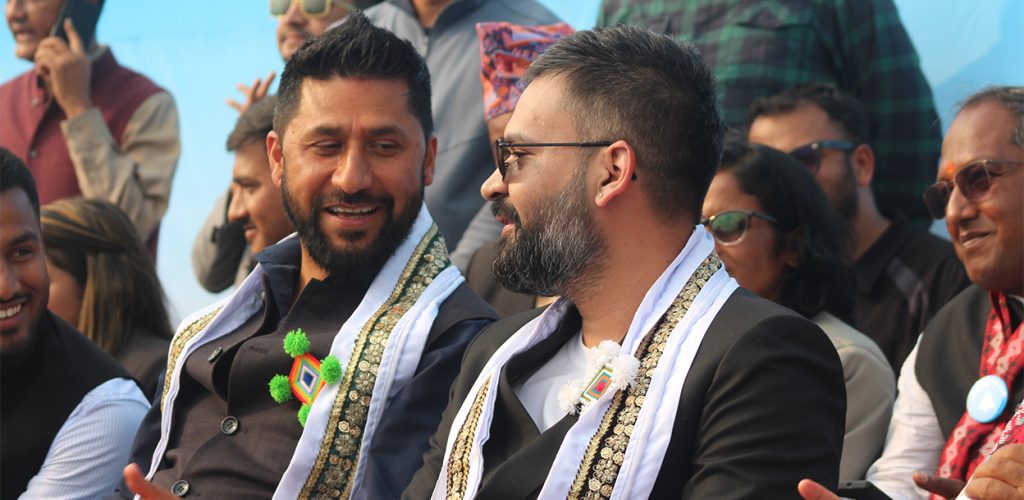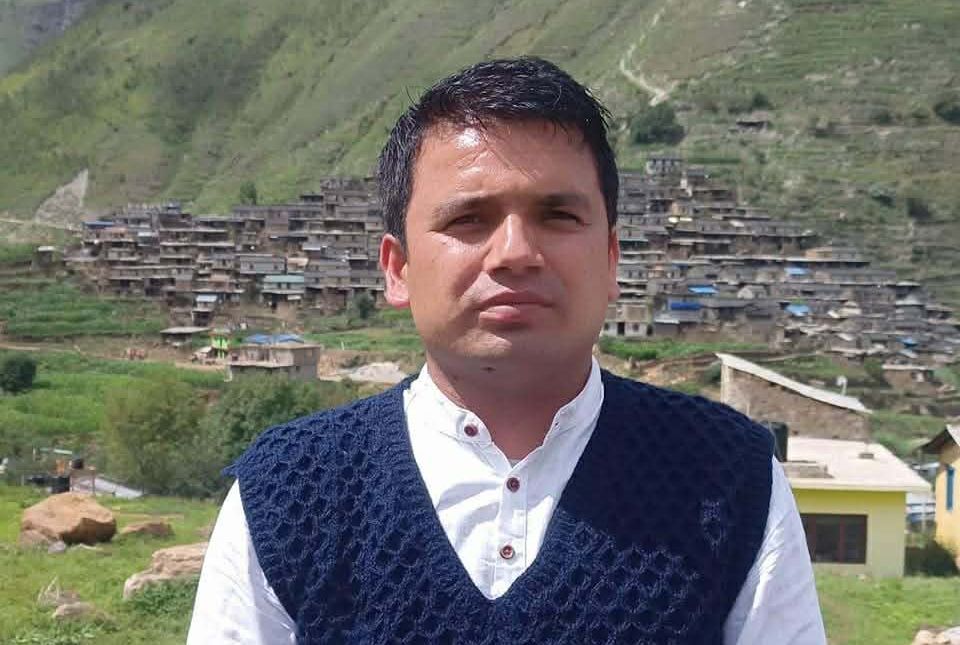
Krishna Bhandari has lived in Israel for nearly two decades. In all that time, he says, he’s never seen anything like the latest missile barrage that lit up the skies over Tel Aviv and Jerusalem.
“Missile attacks weren’t new,” said Bhandari, who is also a president of the Non-Resident Nepalis Association (NRNA) in Israel. “But the Iron Dome used to intercept most of them mid-air. This time, between 400 and 500 missiles were fired in a single wave. Some reached the ground.”
Bhandari described the skies around Tel Aviv as glowing through the night, with sirens wailing and explosions audible across the city. “It felt different this time. It felt closer. And more dangerous,” he told Onlinekhabar.
At least 13 people have reportedly been killed and more than 100 injured since Iran launched retaliatory missile strikes on Israel over the weekend. The Israeli assault that preceded it, launched on Friday, targeted top Iranian military commanders and nuclear scientists, striking military facilities and residential areas, according to the BBC.
Israel justified its action by claiming Iran was taking “unprecedented steps” toward building nuclear weapons. But the fallout from the escalating conflict is reverberating far beyond military circles, specially among Israel’s approximately 5,500 Nepali migrant workers.
We hear sirens every few minutes

In the homes and hospitals of Tel Aviv, Nepali caregivers now work under the constant threat of missile fire. Many say they are anxious, yet determined to stay.
“We hear sirens every few minutes,” said Ramesh Subba, a caregiver from Morang in eastern Nepal. “Last night, there was an explosion nearby. It made me feel things I can’t explain. But as long as we follow the instructions issued here, it doesn’t seem unmanageable.”
Subba, like many, depends on early warnings through sirens and mobile apps like Red Alert and Tzofar to rush to bunkers. He says there’s usually about 15 minutes’ notice before incoming strikes, which is enough to reach safety, but not without stress.
Some workers, specially newcomers, are afraid to leave their homes for work. Others have had to abandon job sites temporarily to find shelter. “There are bunkers on the streets,” Subba said over the phone. “Sometimes you have no choice but to run there.”
Most of Israel’s Nepali workers are employed in caregiving and agriculture. Many arrived under official labor agreements, while others came on visitor visas and later changed their status.
During a lull in Israel’s conflict with Hamas earlier this year, demand for agricultural workers surged, prompting even those in temporary training programs like “Learn and Earn” to take up full-time jobs.
Ramesh (name changed), a youth from Surunga in Jhapa district, said he arrived in Tel Aviv earlier this year under an agricultural trainning program. “The border areas were tense, but Jerusalem and Tel Aviv felt relatively calm then,” he said. Now, that calm has vanished.
We’ll face whatever comes

Despite the escalating violence, there is little appetite for evacuation among the Nepalis community in Israel.
Nepal’s ambassador to Israel, Dr. Dhan Prasad Pandit, said the vast majority “99 percent” of Nepalis have not asked to be rescued. “We’ve reached out to them, told them to inform us if evacuation is necessary,” Pandit said. “But most of them have told us: ‘Let us stay. We’ll face whatever comes.’”
Their reluctance is informed by experience. In October 2023, 10 Nepali students were killed in a Hamas attack on Kibbutz Alumim. Another student, Bipin Joshi, remains missing.
Following the incident, Nepal suspended all labor migration to Israel. Yet many still managed to enter on visitor visas during the lull, lured by stable jobs and higher wages.
“After the Hamas war, Israel needed agricultural workers,” said Bhandari. “They even reached out to former trainees. Many who arrived on other visas switched to work permits.”
Those who were repatriated on chartered flights during last year’s attacks struggled to find similar employment back, Bhandari added. “That’s why many are choosing to stay this time, even under risk.”
Our own actions can invite danger

Even as missiles fall and sirens blare, Bhandari emphasizes the importance of caution and of following Israeli authorities’ emergency instructions.
“There are clear five- to six-point advisories now, what to do, where to go, how to protect yourself,” he said. “But some people still take videos during sirens or go live on social media. That kind of behaviour only increases the risk.”
At night, he added, some people even sleep through the alarms. “That’s dangerous. We need to stay alert.”
On Thursday, Israeli Prime Minister Benjamin Netanyahu declared the launch of a military operation against Iran, accusing Tehran of violating its obligations under the nuclear non-proliferation treaty.
According to the BBC, Israel’s attack came just days before renewed nuclear diplomacy talks between the US and Iran were set to take place in Oman.
International observers note that Iran’s nuclear program accelerated sharply after then-US President Donald Trump pulled out of the 2015 nuclear accord in 2018.
Past tragedy
For Nepal, the crisis is a haunting echo of past tragedies.
After the Hamas attack in 2023, Kathmandu had to urgently arrange evacuations. Now, officials are bracing for the possibility they may have to do so again.
Nepal’s Ministry of Foreign Affairs has instructed its embassy in Israel to treat the safety of its citizens as a “top priority.” But for now, at least, most Nepalis even under high risk are choosing to stay.


























